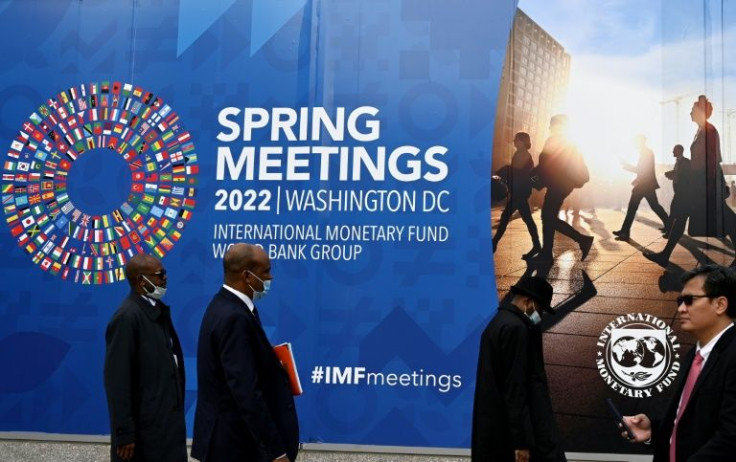No Consensus Among Finance Chiefs At IMF Talks Due To Ukraine War
The International Monetary Fund ended its semi-annual gathering of global finance chiefs without a consensus for the first time in its history on Thursday, a sign of the strains created by Russia's invasion of Ukraine.
The war and the raft of sanctions on Moscow have endangered the global recovery from the Covid-19 pandemic and threatened global cooperation.
"This meeting has obviously not been business as usual," Spain's Economy Minister Nadia Calvino told the reporters at the conclusion of the IMF spring meeting.
"Russia's war against Ukraine has made it impossible to come to a consensus on a communique," she said.
The Washington-based crisis lender, created after World War II to help in the reconstruction of Europe, relies on consensus among ministers at these meetings, although the day-to-day operations rely on the IMF board, where the United States wields a deciding vote.
Instead of the traditional communique, Calvino -- who chairs the fund's steering committee, the International Monetary and Financial Committee -- issued a statement saying she had the support of the "overwhelming majority" of the 189 members.
In addition, there was "virtual unanimity on the substantive issues on the table," she said.
The Russian attack on its neighbor has caused food and energy prices to soar worldwide, fueling already-rising inflation, and causing the IMF to slash its growth forecast for the global economy to 3.6 percent this year.

It also raises fear of a food and debt crisis amid reduced grain supplies, and rising interest rates to combat inflation.
Finance ministers and central bankers "have made an overwhelming call to stop the war," and voiced concerns about the economic impact, "which goes beyond neighboring countries and has a global scope," Calvino said.
"If there has been a time for multilateralism it is now and against this truly challenging background, we need the international community to come together, stand strong and demonstrate our full commitment to cooperation."
With many poor nations facing debt distress, officials this week have lamented the slow pace of implementation of the G20 Common Framework created during the pandemic to help heavily indebted countries find a path to restructure their obligations.
A key hurdle has been the lack of information on the size of debt owed to China, and only three countries -- Chad, Ethiopia and Zambia -- have even requested assistance under the framework.
But IMF Managing Director Kristalina Georgieva said China made "a very concrete commitment" to join the creditors committee for Zambia and "to work constructively" on the debt resolution process.
Earlier Thursday, US Treasury Secretary Janet Yellen called on Beijing to do more to advance the process of helping indebted countries.
"I have been very disappointed by the failure of that framework to deliver relief for more countries. And I've explicitly called out China," Yellen told reporters.
© Copyright AFP 2024. All rights reserved.











